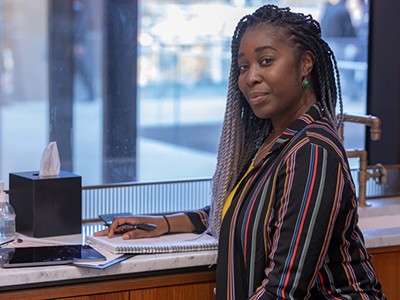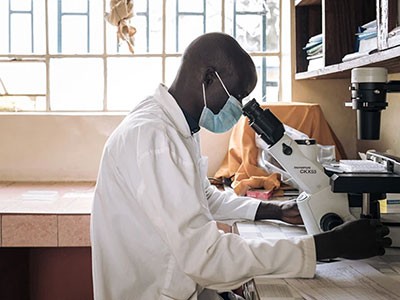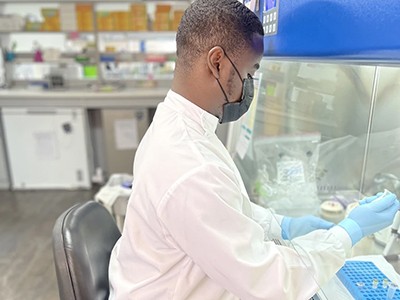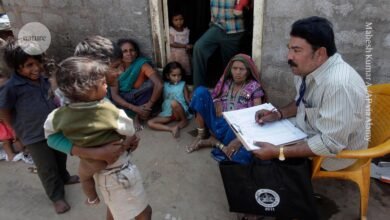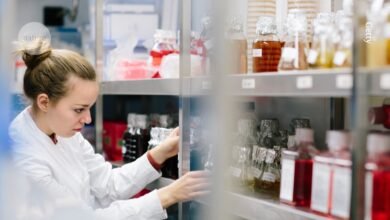Women who travel boost research networks at home — but only in countries with high gender equity
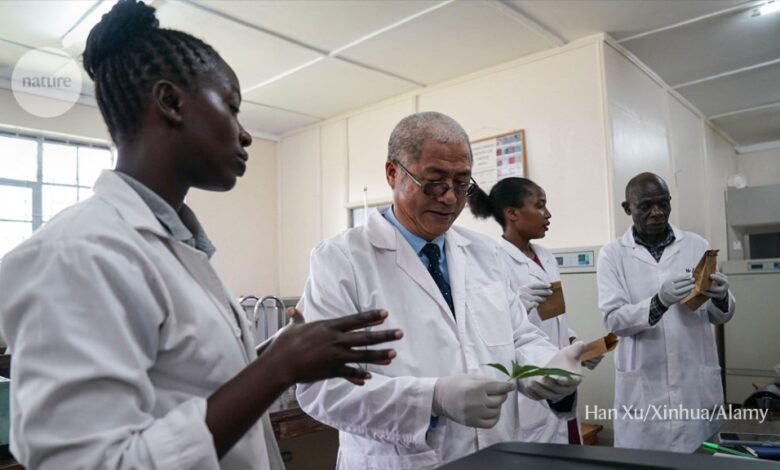
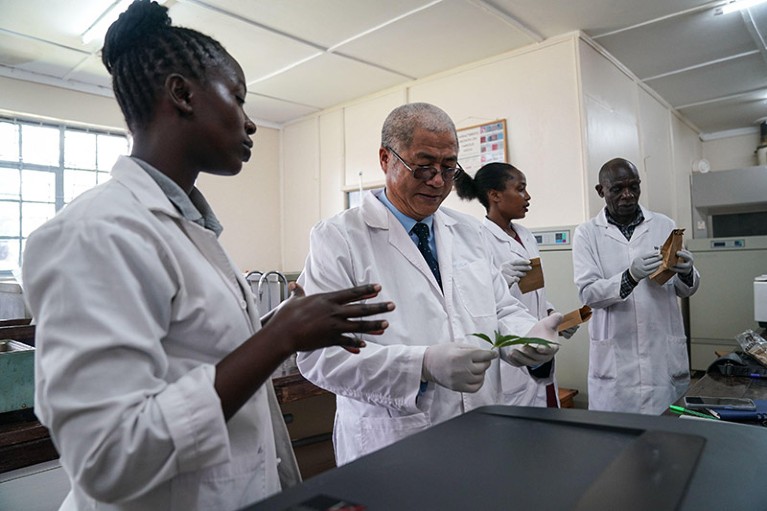
A Chinese academic instructs graduate students at the Kenya–China Belt and Road Joint Laboratory for Crop Molecular Biology at Egerton University in Njoro, Kenya.Credit: Han Xu/Xinhua/Alamy
When female scientists from low- and middle-income countries spend time working in laboratories abroad, they help to strengthen the collaborations and networks of colleagues at their home institutions. But this boost is largest when the women come from and move to countries with strong gender equality, research shows1.
Co-led by Caroline Fry, who studies entrepreneurship and innovation in emerging economies at the University of Hawaii at Manoa in Honolulu, the study suggests that gender-equal environments help women to foster meaningful connections, possibly by providing them with support and legitimizing any leadership roles they take on.
The rise of inequality research: can spanning disciplines help tackle injustice?
Fry and her co-author Jeffrey Furman, who studies strategy and innovation at Boston University in Massachusetts, wanted to understand how the benefits of migration might extend to travelling researchers’ stay-at-home colleagues. The study builds on previous work in which Fry found2 a boost in the number of internationally collaborative research publications by the colleagues of scientists who had returned to African institutions after training in the United States.
Fry and Furman analysed the impact of a fellowship from the Organization for Women in Science for the Developing World (OWSD), an international body based in Trieste, Italy. The fellowship provides high-achieving researchers from low- and middle-income countries with up to four years of funding to pursue a PhD at a host institution in another low- or middle-income country.
In the study, published in Organization Science, Fry and Furman looked at 64 women who had won the fellowship between 1996 and 2014 and whose home organizations had profiles on the publisher Elsevier’s Scopus database. From the database, they identified researchers who worked at the same home institution as these women and in the same field, and looked at changes in their publication patterns. To look for correlations between gender equality and the impact of migration, the authors compared publication trends with measures of gender equality for the researchers’ home and host countries. One such measure was the United Nations Gender Development Index, which looks at levels of health, education and estimated earned income. As a control group, the study examined impacts surrounding 64 female scientists who applied for an OWSD fellowship but did not get one.
African researchers’ work is being overlooked — here’s how to change that
Fry and Furman found that when OWSD fellows came from and moved to countries with strong gender equality, such as Cameroon and South Africa, their colleagues at home produced 10% more publications in collaboration with researchers in the host countries than did the colleagues of fellows whose home countries have low gender equality.
By contrast, fellows both coming from and going to countries with poor gender parity, such as Sudan, made very little difference to their colleagues’ collaborations or networks, the research found.
New collaborative relationships between home and host colleagues in two countries with strong gender parity seem to survive at nearly twice the rate of those in countries in low gender equality. The authors suggest that colleagues in countries with good equality can invest more time and effort into those relationships.
Institutional support is key
International collaboration and networks are crucial for researchers in Africa and other regions with many low-income countries. They enable access to knowledge, training, equipment and leading journals that might not otherwise be available, says Olubukola Babalola, vice-president of the OWSD.
Some female scientists face challenges in brokering these links, perhaps owing to stereo-types and the perception that leadership and networking are jobs for men, says Fry. For example, if a male scientist in Africa wins funding to work internationally, he will pack up his belongings and go, says Babalola. But women must consider who will take care of any children or dependants and, if they’re married, what their parents-in-law will think, she says.
African scientists call for research equity as a cancer crisis looms
The study shows that “female researchers need institutional support to be able to link up colleagues”, says Caroline Wagner, who studies international scientific collaboration and policy at the Ohio State University in Columbus. “All voices and talents are needed in science, so finding ways for institutions to aid female scholars in global outreach is important.”
Other strategies for supporting female scientists include teaching leadership and management skills to prepare them for senior positions and showing them how to make the most of collaboration and networking opportunities, says Babalola. She also supports setting quotas for hiring female researchers to help boost their numbers in Africa.
But the OWSD’s target group now faces an extra challenge. The PhD fellowships programme has lost its funding and has been unable to accept new fellows this year, says Tonya Blowers, who coordinates the programme. Since 1997, the fellowships have been financed by the Swedish International Development Cooperation Agency in Stockholm. The cuts came because of changes in the Swedish government’s priorities, says Blowers.
She says the fellowship programme is fundamental to the OWSD’s vision of increasing the number and influence of female scientists from low- and middle-income countries at an international level. The organization is looking for alternative financing to reinstate the initiative.
“People are longing to have exposure to these kinds of experiences,” says Babalola. “But how can we do it without funding?”
Source link

